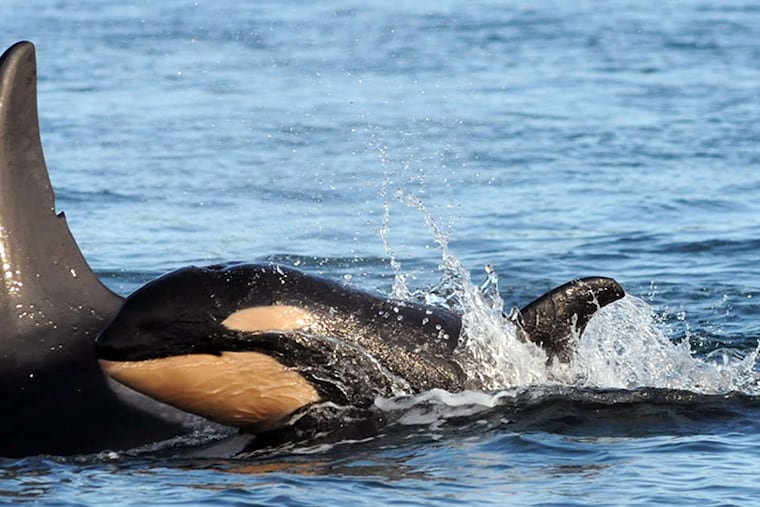Another baby orca spotted in Puget Sound
SEATTLE - Whale researchers are celebrating the birth of another baby orca in Puget Sound, the first time in decades the population has experienced such a boom.

SEATTLE - Whale researchers are celebrating the birth of another baby orca in Puget Sound, the first time in decades the population has experienced such a boom.
The new baby is the eighth born since last December to the small, endangered population of killer whales that spend time in the inland waters of Washington state, according to the Center for Whale Research, which keeps a census of the orcas for the federal government
"It's wonderful," said Ken Balcomb, senior scientist with the center at Friday Harbor. "We're hoping this is the future."
Decades ago, there were more than 140 of the unique animals known as southern resident killer whales. That number declined to a low of 71 in the 1970s when dozens of the mammals were captured to be displayed at marine parks and aquariums across the country.
Despite a decade of research, protection and recovery efforts, the animals continue to struggle primarily due to a lack of food, pollution and disturbances by marine vessels. The population is now at 84. There were 77 animals last December.
The newest orca, estimated to be a few weeks old, was spotted earlier this month near San Juan Island by a member of the Pacific Whale Watch Association.
Researchers couldn't initially determine conclusively from photographs whether the whale was new.
Photos taken Wednesday, however, helped confirm that the eyepatch and other markings on the baby were distinct. Each Puget Sound orca is identified by unique black and white markings or variation in fin shapes.
Balcomb said the baby boom could be due to the fairly good salmon year on the Columbia River. "I think that sort of allowed these mothers to bring their babies to full term," he said.